Why Tallow Balm Might Be the Best Thing You Can Put on Your Skin (And Why the Source Matters More Than You Think)
In the ever-expanding world of natural skincare, a centuries-old remedy from Ancient Egypt, Rome, and Mesopotamia is quietly making a comeback: tallow balm.
With people searching for answers to chronic skin dryness, irritation, and inflammation—and becoming more skeptical of synthetic ingredients—it’s no surprise that tallow, once a household staple, is back in the spotlight.
But what exactly makes grass-fed tallow so good for skin? And does the source of the tallow—beef vs. bison—actually matter?
Curious about what this looks like in a modern formula? See how we use bison tallow here.
What Is Tallow Balm?
Tallow balm is a rich, oil-based moisturizer made by slowly rendering the fat of ruminant animals like cows or bison. Unlike plant-based oils that often contain high levels of unstable polyunsaturated fatty acids (PUFAs), tallow is primarily composed of saturated and monounsaturated fats, which are far more stable—both on your shelf and your skin.
This matters—because the fats you apply topically interact with your skin’s lipid matrix, sebum production, and microbiome.
The Science Behind Why Tallow Works
Tallow isn’t just moisturizing—it’s bio-identical. Its lipid profile closely mirrors that of human sebum, which makes it uniquely absorbable and non-disruptive to the skin barrier.
1. Fat-Soluble Vitamins (A, D, E, K2)
- Vitamin A (retinyl esters): Supports cellular turnover, reduces fine lines, and helps clear acne without the irritation of synthetic retinol.
- Vitamin D3: Regulates skin immunity. Deficiencies are linked to inflammatory skin conditions like eczema.
- Vitamin E: A potent antioxidant that protects skin lipids and speeds up healing.
- Vitamin K2 (MK-4): Maintains skin elasticity and prevents calcium buildup in tissues.
A well-sourced tallow balm can deliver all four of these in their natural, unaltered form. Learn how we preserve them here →
2. Stearic Acid
This saturated fatty acid strengthens the skin’s outer layer, reduces water loss, and improves permeability. It also helps carry fat-soluble vitamins deep into the dermis—making tallow a functional delivery system for nutrients.
3. Conjugated Linoleic Acid (CLA)
CLA is an anti-inflammatory, antimicrobial fatty acid found almost exclusively in the fat of grass-fed animals. Topical CLA has been shown to reduce inflammatory cytokines and improve healing in keratinocyte skin cells.
Why Bison > Beef (Nutritionally and Structurally)
Both grass-fed beef and bison tallow are lightyears ahead of synthetic skincare, but side-by-side, bison consistently outperforms beef tallow in several key nutritional metrics:
| Nutrient | Grass-Fed Beef Tallow | Grass-Fed Bison Tallow |
|---|---|---|
| CLA (mg/100g) | ~280 | ~340–360 |
| Omega-3s (EPA, DHA) | ~70 mg | ~90–110 mg |
| Stearic Acid | 14–17% | 17–20% |
| Pro-oxidant PUFAs | ~2–3% | ~1.5–2% |
This is largely due to how bison live. They’re undomesticated, forage naturally, and are almost always raised regeneratively. Their fat reflects a cleaner, wilder, and more nutrient-dense profile.
Wondering how wild-grazing bison create cleaner skincare? See the sourcing behind our balm.
Structurally, bison tallow is also softer and less waxy than beef tallow—making it easier to whip and more pleasant to apply.
Why You’ll Often See Jojoba Oil and Manuka Honey in the Mix
The most effective tallow balms often pair with two standout ingredients:
- Jojoba Oil: A PUFA-free plant oil nearly identical to human sebum. It regulates oil production, calms inflammation, and is non-comedogenic.
- Manuka Honey: Rich in methylglyoxal (MGO), which gives it its potent antimicrobial and wound-healing properties. Particularly useful for acne, irritation, and healing minor skin damage.
Jojoba and Manuka round out the formula to be as close to skin-perfect as nature allows. Here’s how we combine them →
A Return to Biological Logic
Most moisturizers today contain up to 70% water, seed oils, emulsifiers, and lab-derived preservatives. While they may feel hydrating on the surface, they often disrupt the skin’s natural processes underneath.
Tallow balm is different. It works with your biology, not against it. It’s one of the few skincare ingredients that’s ancestrally consistent, chemically compatible, and clinically sensible.
Whether you’re looking to simplify your routine, cut out toxins, or finally fix chronic dryness — tallow balm is a logical place to start.
We created our balm to reflect that same logic—minimalist, ancestral, and highly effective. Take a closer look here.

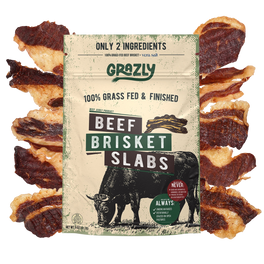
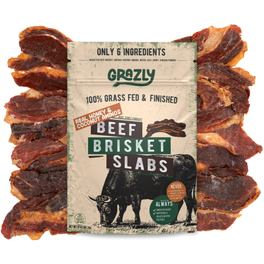
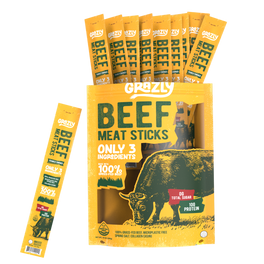
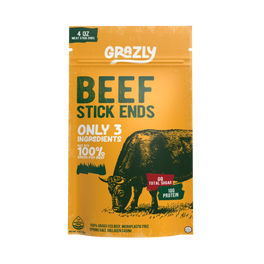
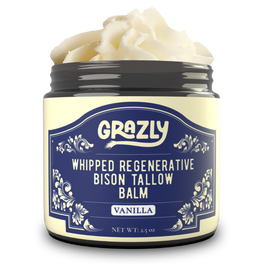
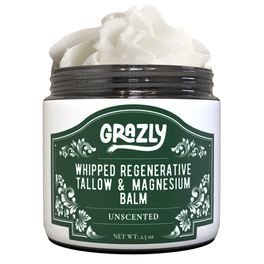
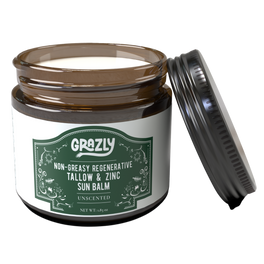
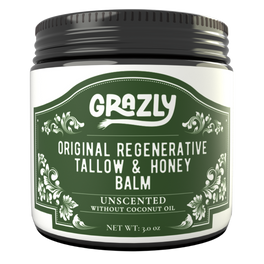
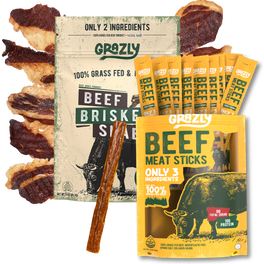
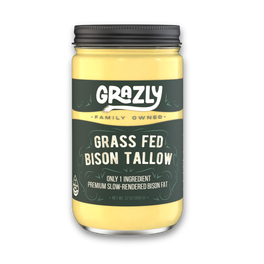


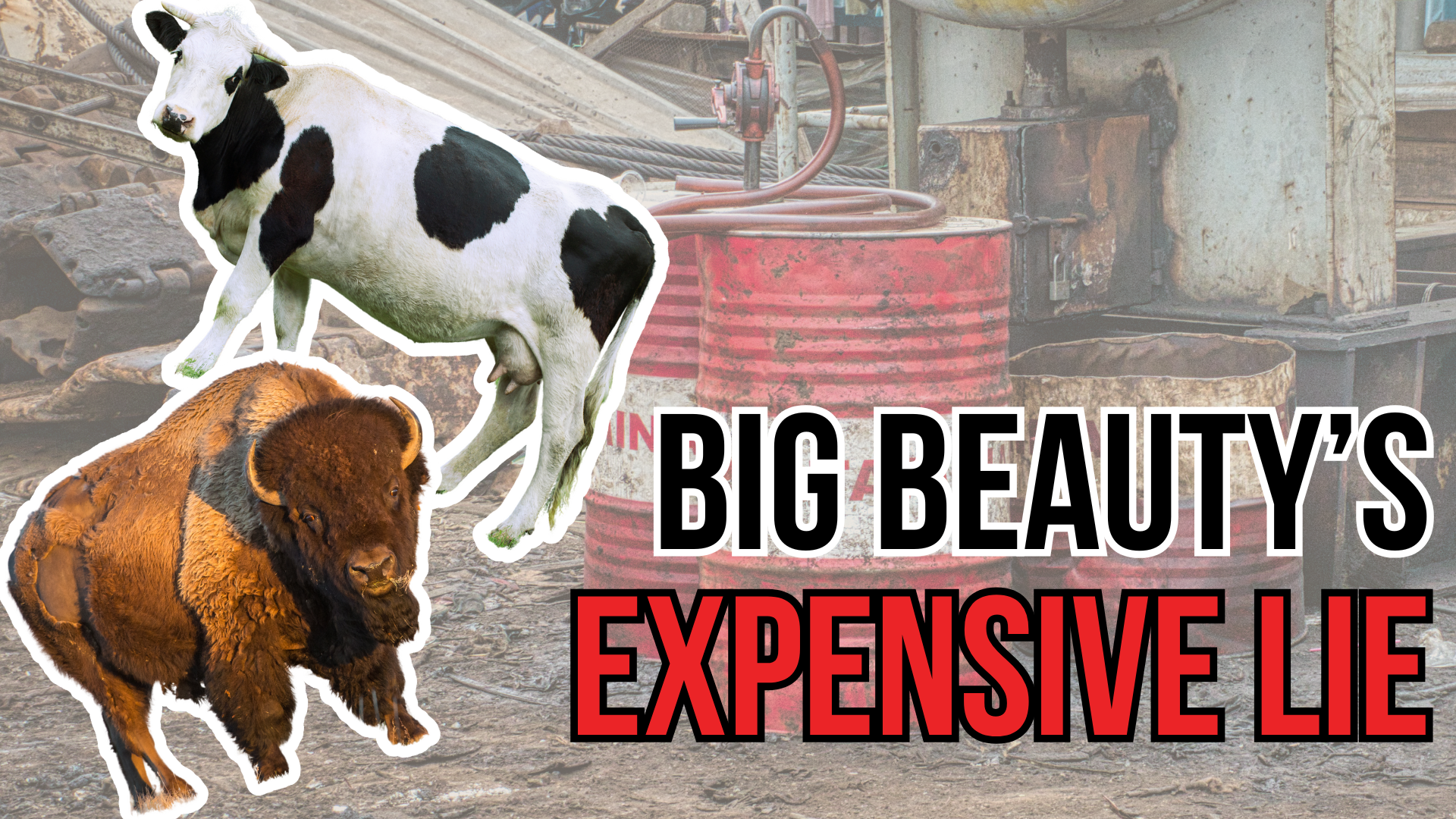
Leave a comment
This site is protected by hCaptcha and the hCaptcha Privacy Policy and Terms of Service apply.